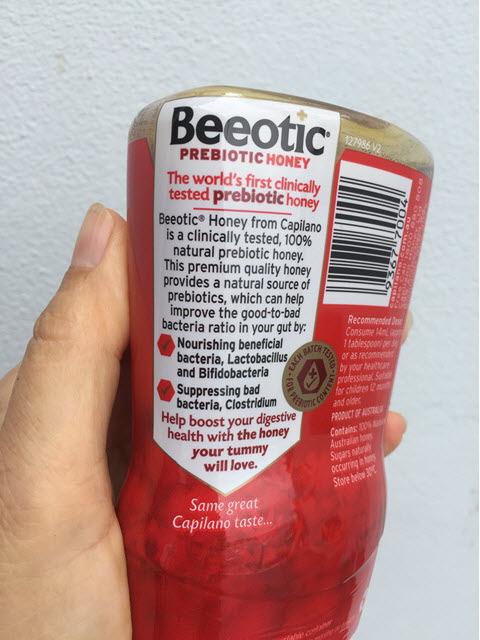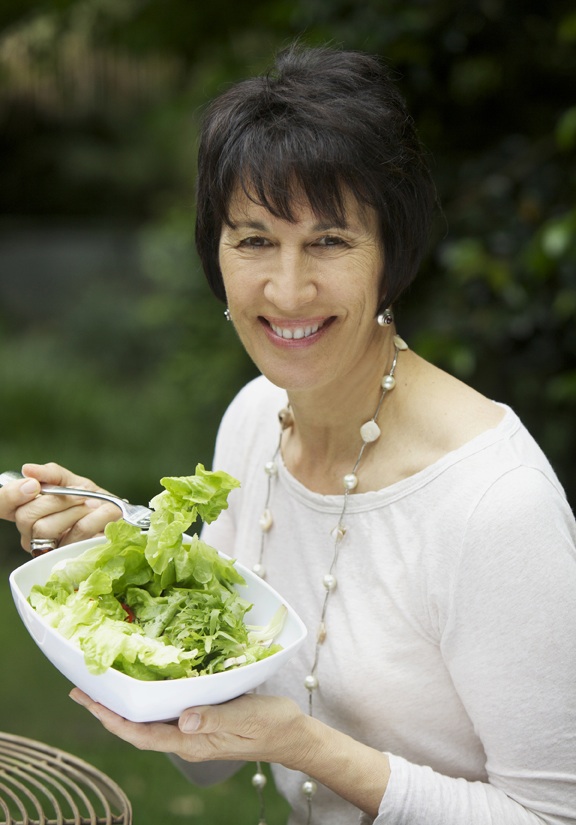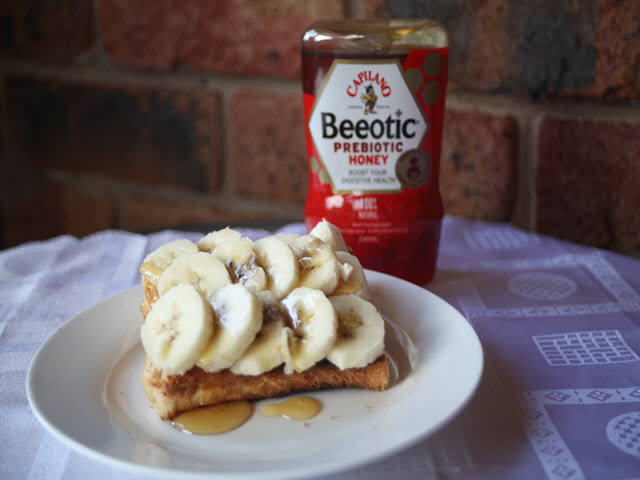Product Snapshot: Capilano Beeotic Honey
Written by
on Wednesday, 05 July 2017.
Tagged: health, healthy eating, honey, nutrition, prebiotic, review

Classic honey, cloudy honey, floral honey, single species honey (like yellow box or ironbark), Manuka honey, Medi-Honey and creamed honey – today there are so many options! Honey is the go-to sweetener in many households. It can be used in herbal teas, with lemon and hot water, and is heavenly on top of porridge or mixed into yoghurt. It also has numerous perceived health benefits, including healing cuts, soothing sore throats and more.
In this Product Snapshot, we look at the pros and cons of one of the newest honey options on the market, Capilano Beeotic Honey.
Health Claims
 Beeotic honey made by Capilano claims to be the only clinically-tested prebiotic honey in the world. Prebiotics are natural, non-digestible fibres that feed the good bacteria living in your gut and help sustain health and overall wellness. Maintaining these good bacteria is important for good digestion.
Beeotic honey made by Capilano claims to be the only clinically-tested prebiotic honey in the world. Prebiotics are natural, non-digestible fibres that feed the good bacteria living in your gut and help sustain health and overall wellness. Maintaining these good bacteria is important for good digestion.
There are many causes of imbalance between the good and bad bacteria in your gut. These include:
* antibiotic use
* poor diet
* extensive use of disinfectants.
Getting the balance of bacteria wrong can have far reaching effects on your health and even impact your weight, the absorption of vitamins and minerals, and cause inflammation.
That’s why it is important to maintain a healthy level of good gut bacteria and Beeotic claims to do this. Capilano recommend a dose of 14 mL of honey per day (around one tablespoon).
As with any high glycaemic sweetener, don’t overdo the honey - even if it’s got probiotics. Unless you’re active and used to consuming carbs, it’s best to stick to one 14 mL tablespoon a day otherwise you may find yourself gaining weight.
In fact Capilano say on their website that Beeotic "is a medicinal honey, with a recommended dose of 14 mL per day clinically demonstrated to provide therapeutic effects. We do not know of any additional benefit in taking more than the recommended dose. The maximum daily dose is 70 mL."
Pros
- Proven health claims (e.g. healing, antibiotic properties, support the growth of friendly gut bacteria such as Lactobacillus, suppressing the bad bacteria such as Clostridium as outlined on the Capilano website )
- Pleasant texture and mild taste; not overly sweet
- Easy-to-use squeezable jar
- Packaging allows portion size to be controlled well – no quick pouring leading to supersized portions
- Australian owned and produced
Cons
- Expensive - $10 for a small jar
- Packaging entices high consumption of a sugary product – remember honey is still a form of sugar
- Thick consistency – but this makes overconsuming it hard to do
- Plastic bottle.
Nutrition stats
| Nutrient | Beeotic per 14 g serve | Beeotic per 100 g | Classic Honey per 100 g |
| Energy | 212kJ (51Cal) | 1416kJ (338Cal) | 1416kJ (338 Cal) |
| Carbohydrate | 12.5g | 83.1g | 83.1g |
| Sugars | 12.4g | 82.5g | 82.5g |
| Sodium | 2.3mg | 15mg | 15mg |
Data from manufacturer’s website: www.capilanohoney.com
My verdict?
If you can afford the price, this honey appears to tick all the boxes. Health claims to correct gut bacteria are scientifically supported, making this honey beneficial in our overmedicated culture. It may be particularly useful in those struggling with digestive problems such as irritable bowel.
Keep in mind that honey is still a form of sugar, regardless of being ‘natural’. Too much honey will still expand your waistline, so moderation and small portion sizes (a 14 mL tablespoon as per the manufacturer’s suggestion) is important.
Honey is not a cure-all though and if you cannot afford this highly expensive alternative honey don’t stress, there are other ways to increase your intake of prebiotics. Such as including any of the following in your diet: onions, garlic, leeks, Jerusalem artichokes, chicory root and asparagus.
Thank you to Caitlin Delaney for the research, photos and writing.
Save
Save
Save
Save
You may also be interested in...
Like to have your product reviewed by Catherine?
 This post was researched and written by Catherine Saxelby, an accredited nutritionist, dietitian, author and award-winning food communicator. Catherine's goal is to help busy working women eat well, maintain a healthy weight and boost their energy.
This post was researched and written by Catherine Saxelby, an accredited nutritionist, dietitian, author and award-winning food communicator. Catherine's goal is to help busy working women eat well, maintain a healthy weight and boost their energy.
Checkout Catherine’s other posts, books and product reviews or sign up for her free Foodwatch newsletter. To have your product or service reviewed by Catherine and her team, click here.
Sign up for Catherine's free Foodwatch newsletter
The Good Stuff
The Boring Stuff
© 2023 Foodwatch Australia. All rights reserved
Author photo by Kate Williams
Website by Joomstore eCommerce








